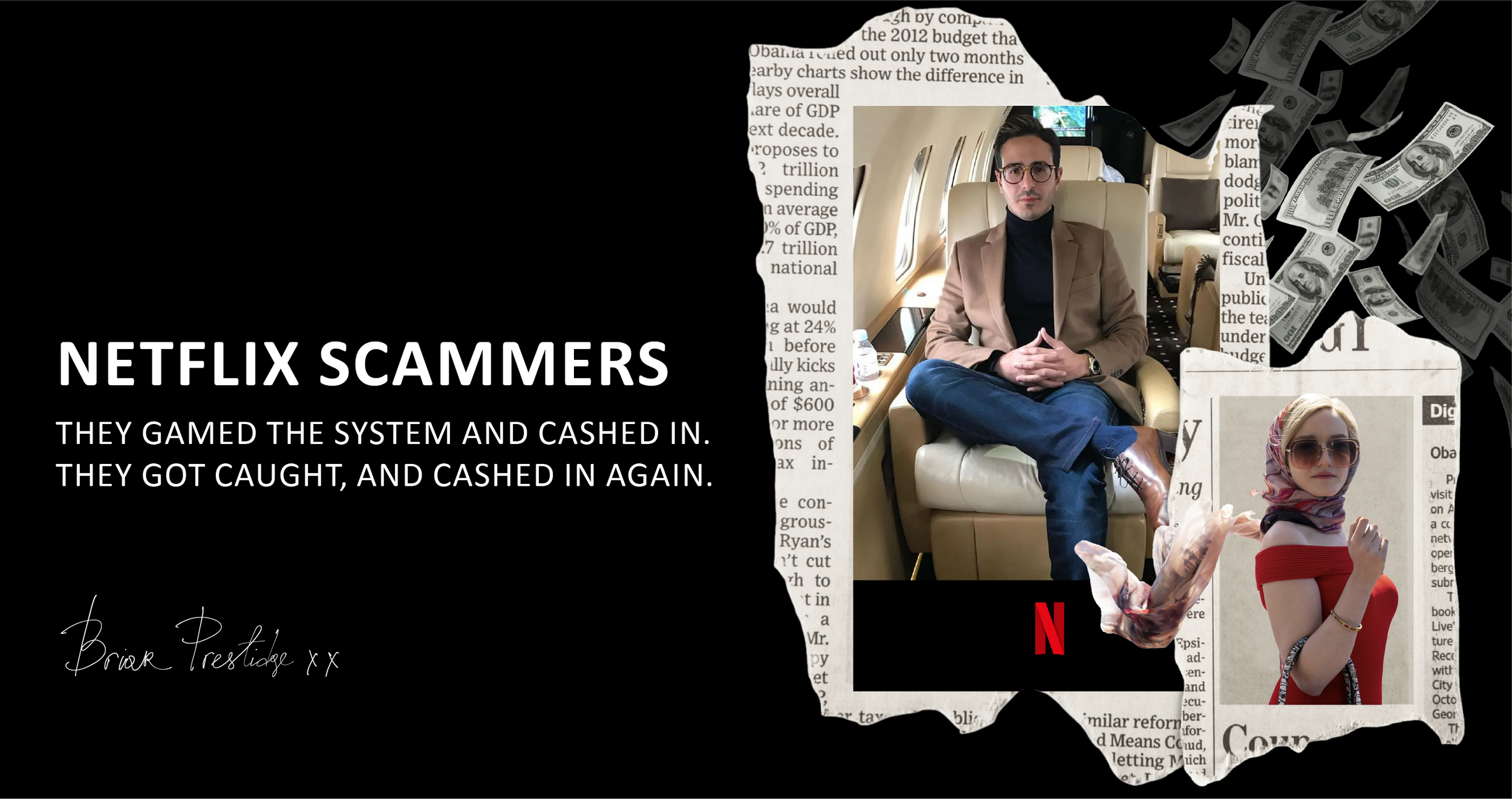Opinion: The Rise of Scammer Fame in an Era of Social Media Mass Delusion
In an era where reality is easily distorted online, scammers are achieving disturbing fame and fortune. Where Americans once revered rags-to-riches tales, today's influencer culture breeds exaggerated personas. Armed only with wits and delusion, fraudsters like Anna Delvey infiltrate elite circles, generating wealth and notoriety. This looks to be an era where distorting reality on social media leads to fame and fortune.
Anna Sorokin (her actual name) gamed the system to infiltrate the upper echelons of socialite society like few people of her background ever accomplish. In so doing, she also inadvertently illuminated the failings of late-stage capitalist America. While I do not condone her actions, it’s easy to see why her story has fascinated so many as recounted in the much-watched Netflix documentary, Inventing Anna. Though we empathized with the deceived, we also got to vicariously live out our fantasies of the lifestyle of the uber-rich while “sticking it to them” at the same time.
Likewise, consider fraudster Billy McFarland, who, in 2017, took social media by storm with his planned Fyre Festival, a major event planned on an island in the Bahamas allegedly featuring big celebrities and music acts. He even paid influencers like Kendall Jenner and Bella Hadid to promote the festival, and people happily forked over $500 for a ticket with VIP packages topping out at $400,000 to participate in the “cultural experience of the decade.” When attendants finally made it to the island, all that awaited them were a couple of flimsy tents and empty promises.
This lineup of scammers would not be complete without the Tinder Swindler (also the name of a Netflix documentary covering his crimes), the moniker given to Israeli conman Shimon Hayut who posed as ‘Simon Leviev,’ the alleged son of diamond mogul Lev Leviev, to trick women he met on Tinder and defraud them of their money. Through careful use of gifts, social media, and deception, he conned multiple women to the tune of $10 million before ghosting them completely.
The common denominator among these fraudsters was the use of social media to carry out their schemes. The illusion of social media laid the foundation for Sorokin’s fabricated persona, attracting people who wanted to be associated with the allegedly wealthy heiress. The Fyre Festival’s marketing material on social media pushed opulence, debauchery and FOMO, and attracted a generation of people obsessed with online recognition. And Hayut’s carefully crafted diamond-fortune heir character, along with manipulative online messages, ensnared his victims.
In all cases, the scammers preyed on human weakness and desires to get what they want, and to game the system on the way to fortune. As the disparity between the “haves” and “have nots” continues to widen, social media has created an environment ripe for deception in which Americans desperately try to persuade users that they are someone of influence and elevated social status.
“On social media, we’re selling an identity, and we’re buying an identity from someone else,” Jenner Furst, who directed and produced the 2019 Hulu documentary Fyre Fraud, explains. “We’re all engaging in this transactional economy of social media every day, so the grifter has a wonderful foundation in which to scam. They do it through a false illusion on social media, through a series of dog whistles or lucky charms or some bread crumbs to the pot of gold you hope you’re going to have for your life, through using FOMO or other tools or convincing you you’re missing out on something. If only you could discover the secret they’ve discovered, your life would be better. Social media is the perfect vehicle for that.”
While Sorokin, McFarland and Hayut all were arrested and spent time in jail for their crimes, now that they are free again, it seems to be business as usual.
McFarland recently announced he’s organizing a Fyre Festival II, even though he still owes millions to his earlier victims. More than 100 people bought tickets within two days of the announcement on Instagram. It truly boggles the mind the lengths people will go to over FOMO.
Hayut is launching a career as a reality TV star with The Simon Show, counting on his notoriety following Netflix’s documentary reporting his crimes to drive viewers.
Sorokin is exploiting her infamy to rebuild her wealth. Not only did Netflix pay her $320,000 for the rights to her life story (which she reportedly used to pay restitution, fines, and attorney fees), but she recently worked with famous PR personality Kelly Cutrone to produce a new project at New York Fashion Week.
It’s hardly surprising that fraudsters are cashing in. Given that social media already treats misinformation in the same way as accurate data and makes little effort to clarify the credibility of posts or content writers, it was inevitable that Americans would embrace these criminals as clearly fame and infamy are viewed as one and the same. Perhaps, in some way, we all channel our inner ‘Anna Delvey’ each time we use a filter, Photoshop an image, or post a vacation photo dump. After all, is this not the era of mass delusion?
About Briar Prestidge
Briar Prestidge is very much a citizen of the world. She is the CEO of Prestidge Group , a boutique executive thought-leadership and PR agency, based in NYC, Dubai, and London.
In 2022, Briar produced the documentary ‘48 Hours in the Metaverse’ where she visited 33 virtual worlds non-stop. She sits on the Advisory Board for Interpol as a Metaverse Advisor, Advisory Board for the Metaverse Fashion Council, and she serves as a Strategic Advisor for Imagin3 Studio.
With a background in neurolinguistics and digital marketing, Briar’s an expert on personal branding and reputation, social media, virtual reality, metaverse and emerging tech.


